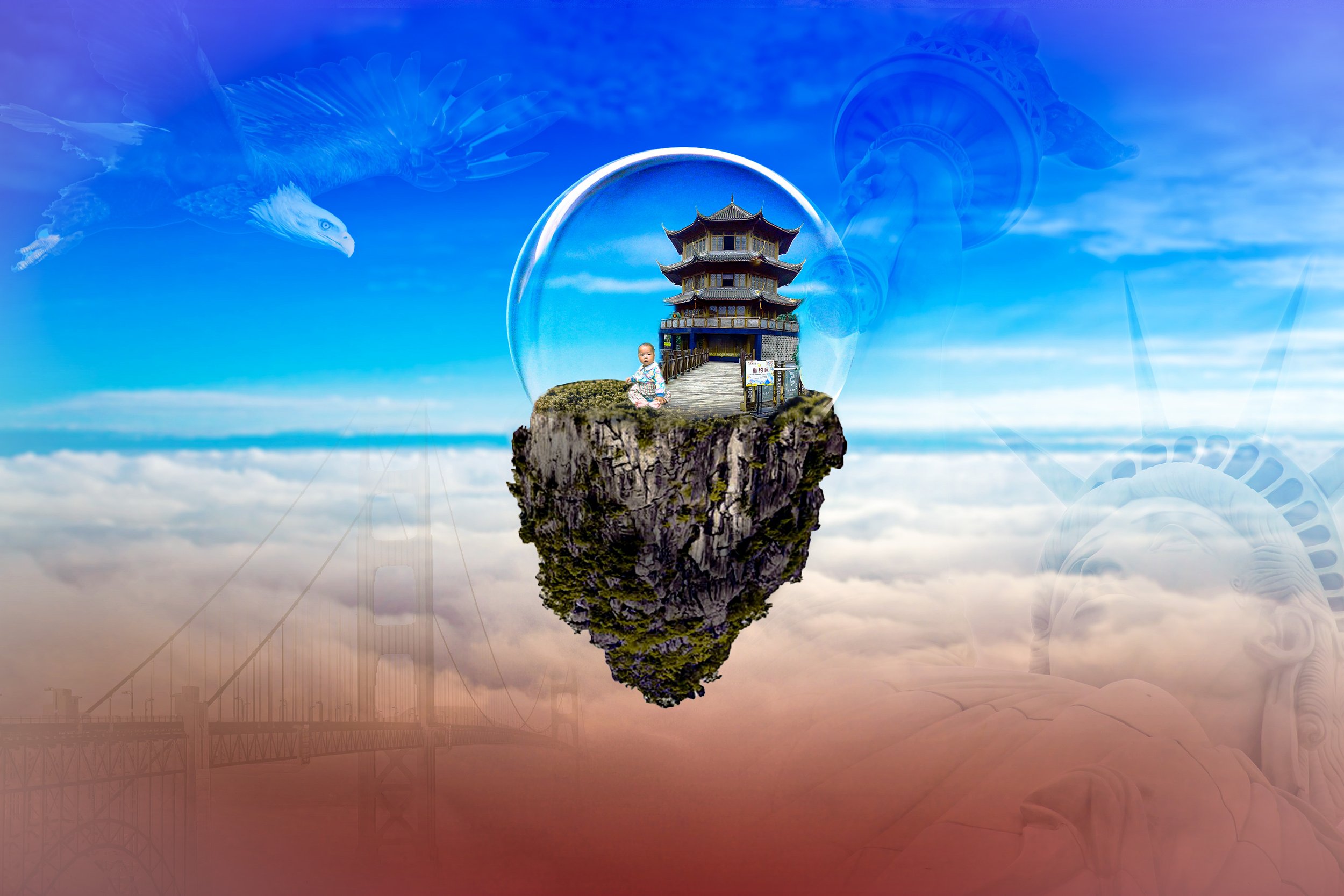
Awaiting Assimilation by Rachel Prost
At 10 months old, I sit in a bubble on top of an upside-down Karst Mountain from Guilin, China where I was born. The island floats in a sky filled with faint symbols of the United States of America symbolizing the flight from East to West unknowingly awaiting assimilation upon arrival in the United States.

Roots in China, Home in the States by Rachel Prost
While my heritage and roots are in China, my home is in the United States. By blending the flags and national flowers of my ethnic heritage and current home, I hope to demonstrate that my identities as ethnically Chinese, an American citizen, and a transnational adoptee are intertwined.
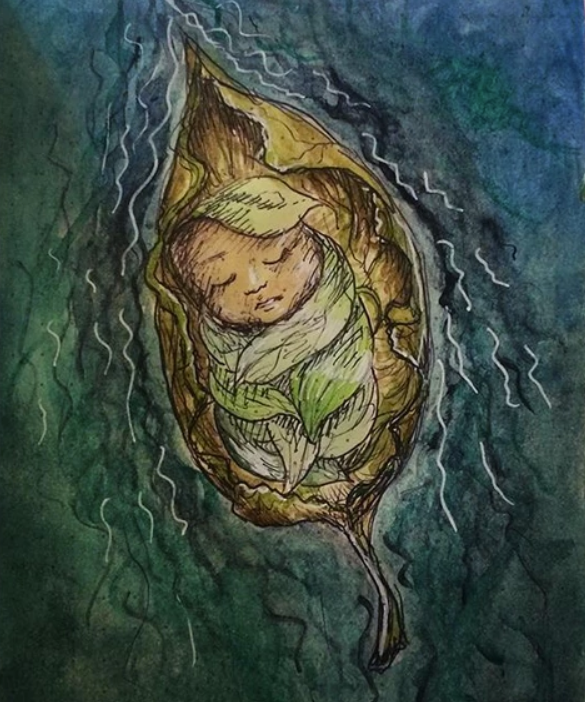
Earth’s Child by Anna Watson
I think this watercolor painting has always represented my inner concept (artistically) of being a lost child, from birth - a product of the earth.
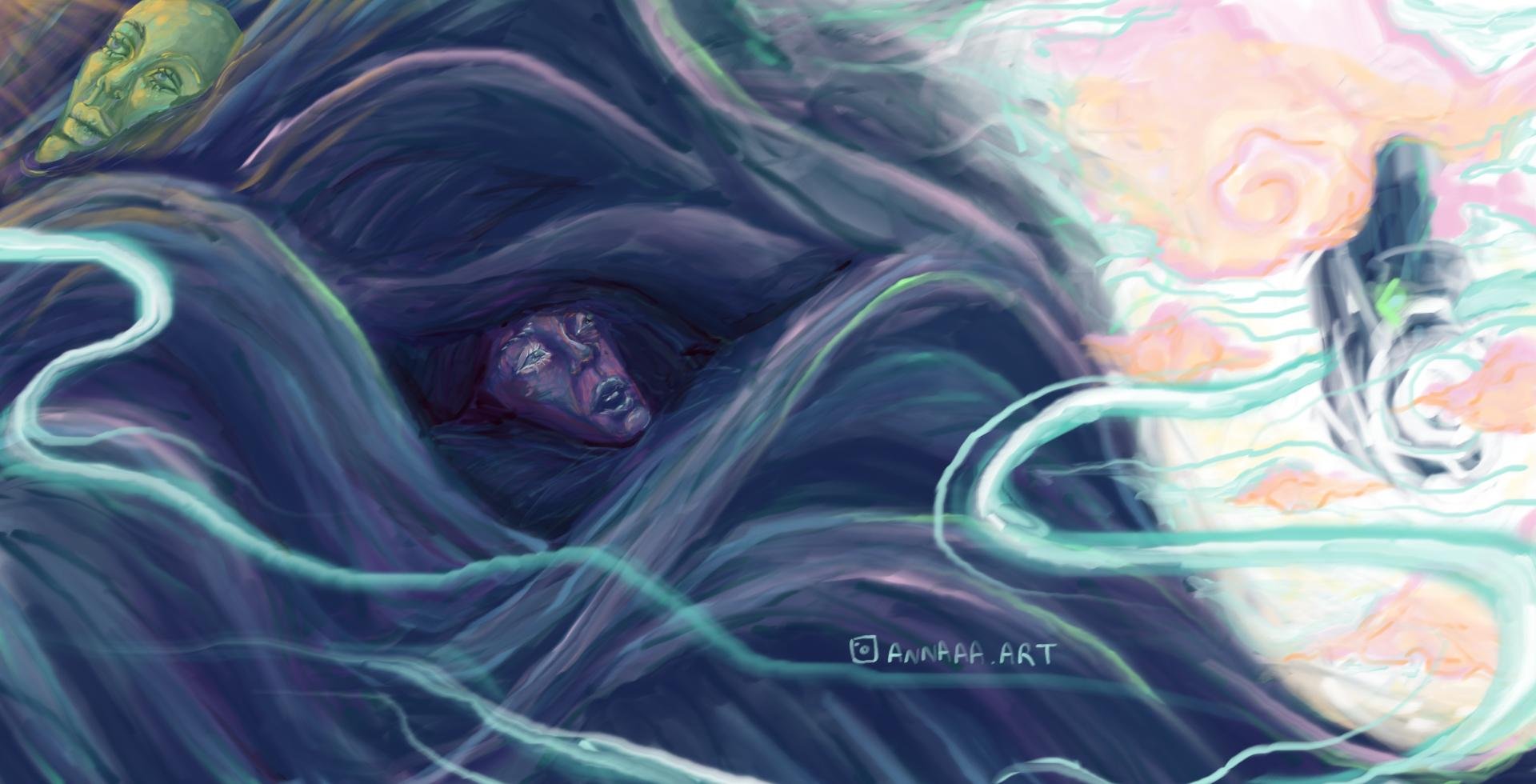
Lost Souls by Anna Watson
'Lost Souls' - a piece which attempts to combine feelings of loss, past, present, future and the overwhelming loneliness or isolation that comes in between.

Foreign Lands by Anna Watson
This piece represents myself, wandering the streets of China. Feeling a part of the setting whilst distinctly separate somehow. I wanted it to represent the oddness, beauty and curiosity I felt visiting the country from which I originate.
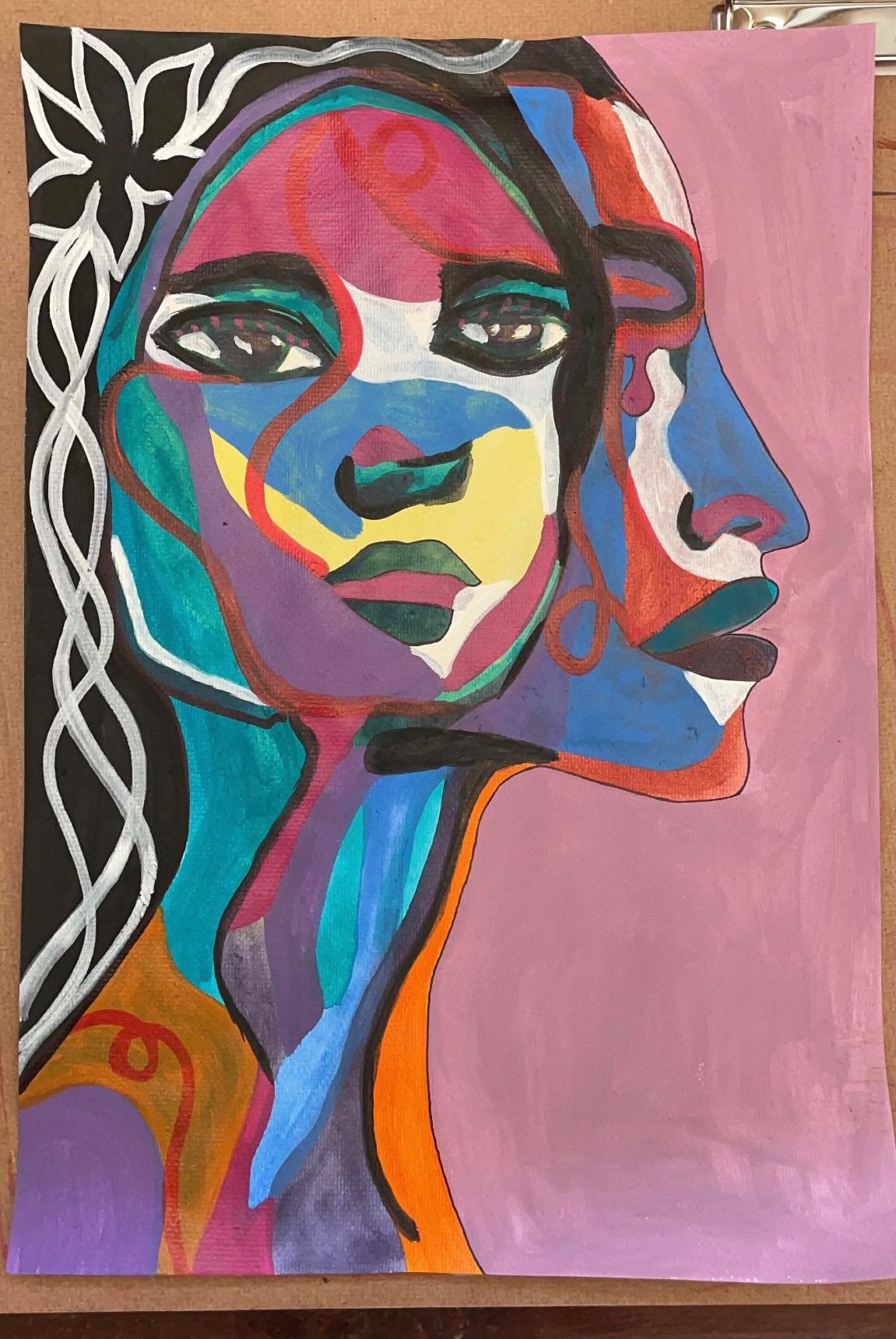
Two Faces by Abi Otwell
Both of these paintings were based on art I encountered on Pinterest. The ideas jumped out at me because at the time, I was feeling particularly at odds with who I was and where I was going. So, I took the inspiration and ran with it – altering colors and details to make it my own.
For one, I felt exactly as I wrote in my piece – wearing two faces everywhere I went. One to present to the world as put-together and sane; a second one lurking in the background that truly reflected the ambivalence I felt about existing. The painting of the woman with two faces, both colorful and abstract, speaks to incongruous identity.
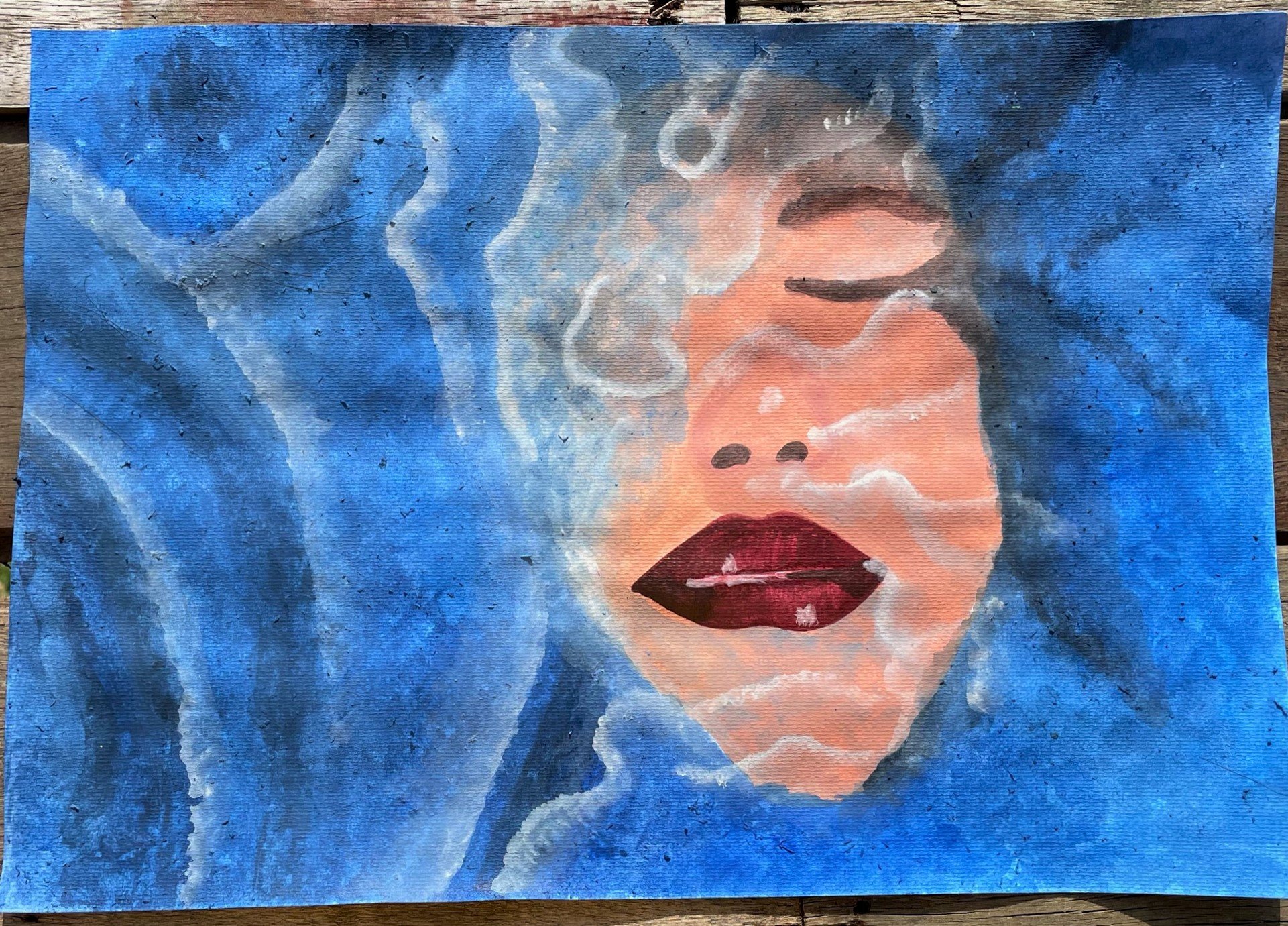
Drowning by Abi Otwell
The second painting of the face nearly slipping underwater simply represented the feeling of drowning that I felt at the time. When faced with overwhelming overstimulation, I use creative outlets to express myself. Mine is not nearly as perfect as the original piece I saw on Pinterest but that fact further contributes to my version. It was never meant to impress, sell, or be anymore than comfort to me.
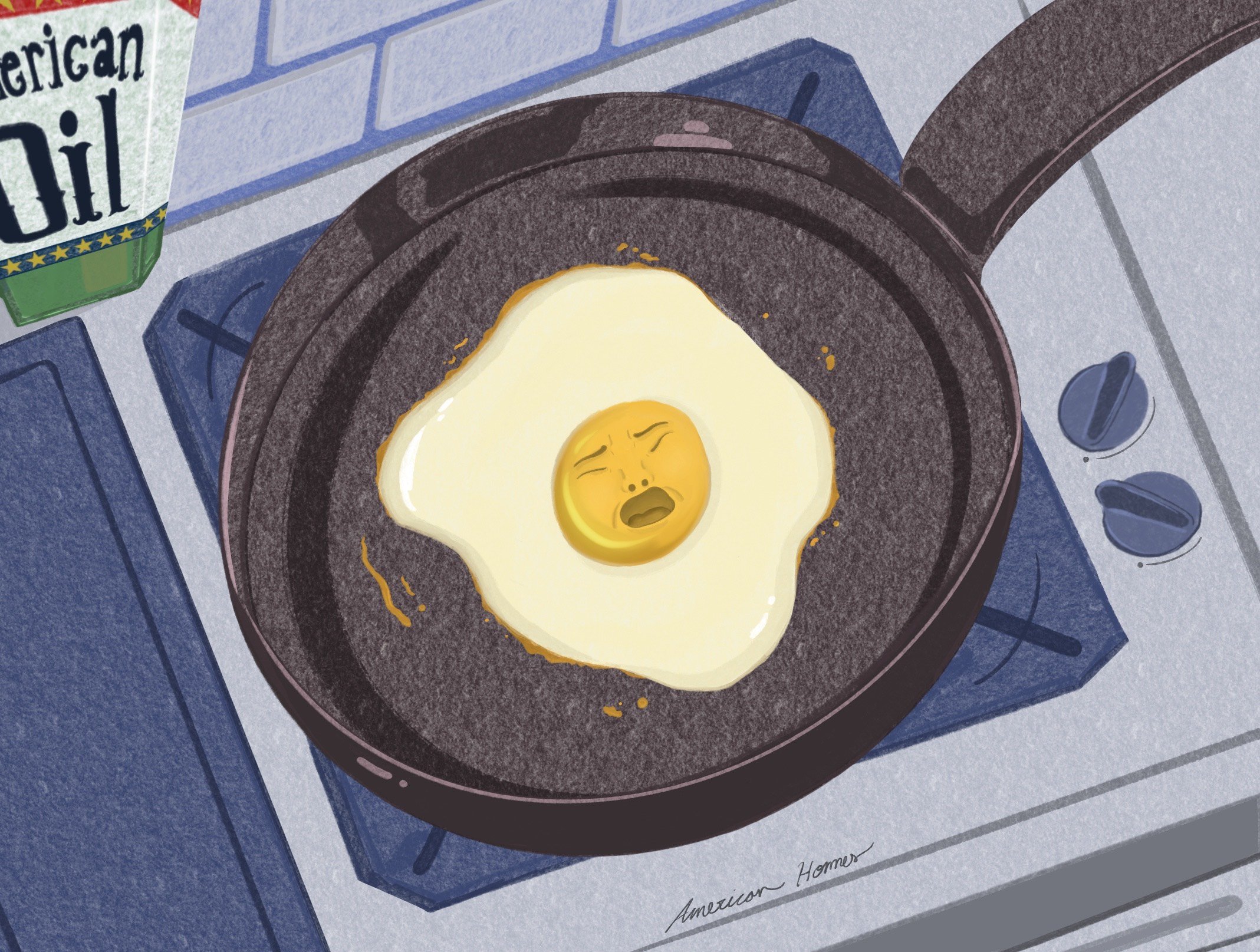
Egg-istential Crisis by Aubrey Meiling
The yolk—the circular part of an egg that is surrounded by white. The gooey substance that's
identifiable color is the same as what some would label the color of my skin. I've never let the term
"yellow" define me, but the distinction between myself and my classmates has always been there.
The sunny side up egg has been a metaphor I’ve used to depict my struggle, as a Chinese adoptee, with
my cultural identity. Growing up in a predominantly white community, eye stretches and ching-chong
taunts were a regular occurrence. Although I learned to ignore these microaggressions, their buildup
would eventually hit. In addition to being teased about my physical appearance, my American
culturalization also marked me as a whitewashed Asian. I was a yolk surrounded by whites, being fried in
American oil, and I was unsure of how to scramble. To me, the sense of acceptance was a treasure that I
had no map to—acceptance from others and myself. Around my classmates I desired to be white and
around other Chinese, I wished I was “traditional.”
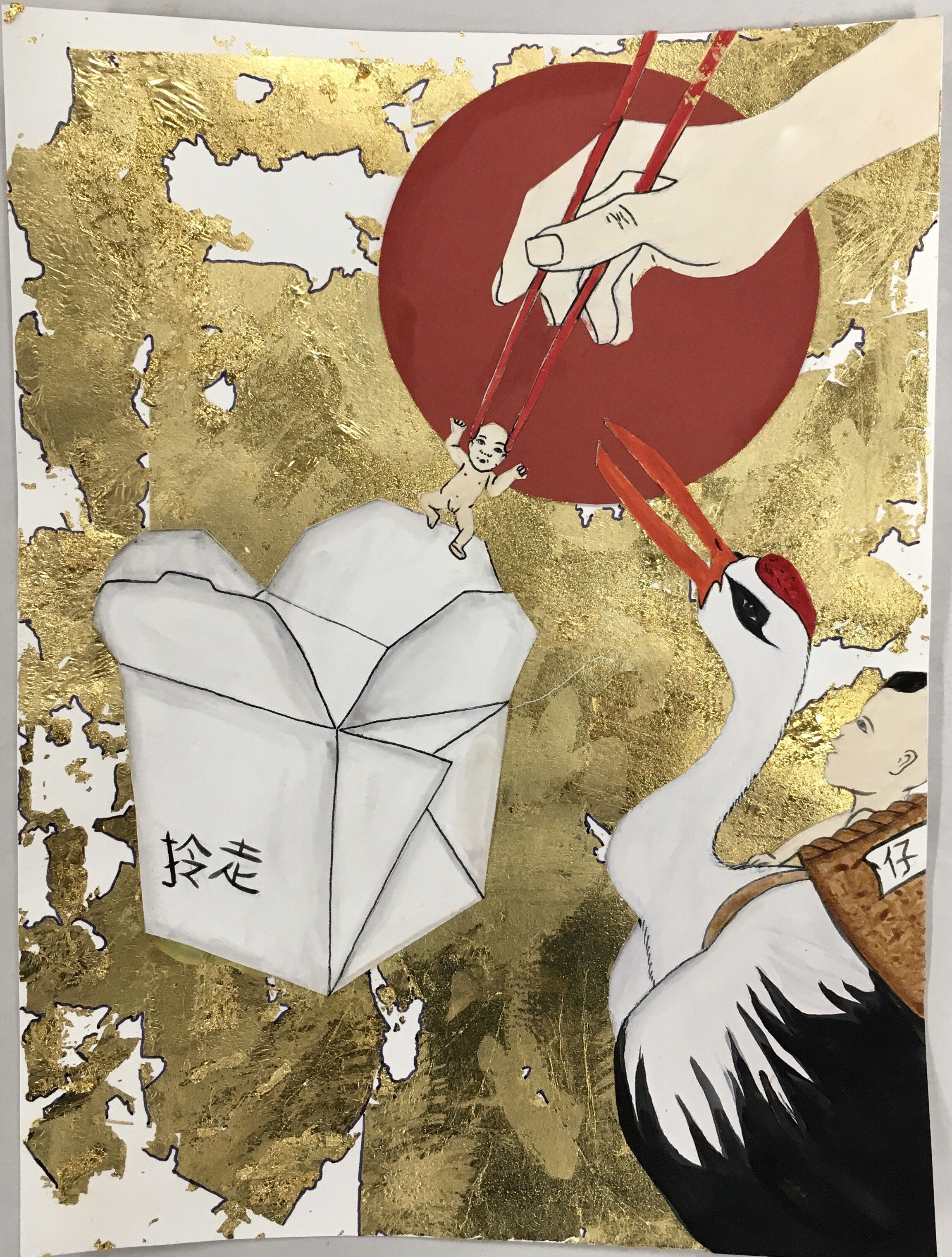
Chinese Takeout by Aubrey Meiling
Chinese takeout. The Chinese take out the ones they cannot keep and the ones they do not want.
Before adoption was abandonment, a scar that is left on the opening chapter of most adoptees’ lives.
When I was younger, I understood that my sex may have been what lead me to my own takeout box. I’d
wonder, “if I was a boy, would I have been kept?” “Was my identification as a female a predetermined
sign of failure to my Chinese family?”
The gold leaf exemplifies the predicted crumbling prosperity and good fortune of the abandoned
daughters. I wanted to depict the scar of abandonment— the scar that used to weigh down my worth.
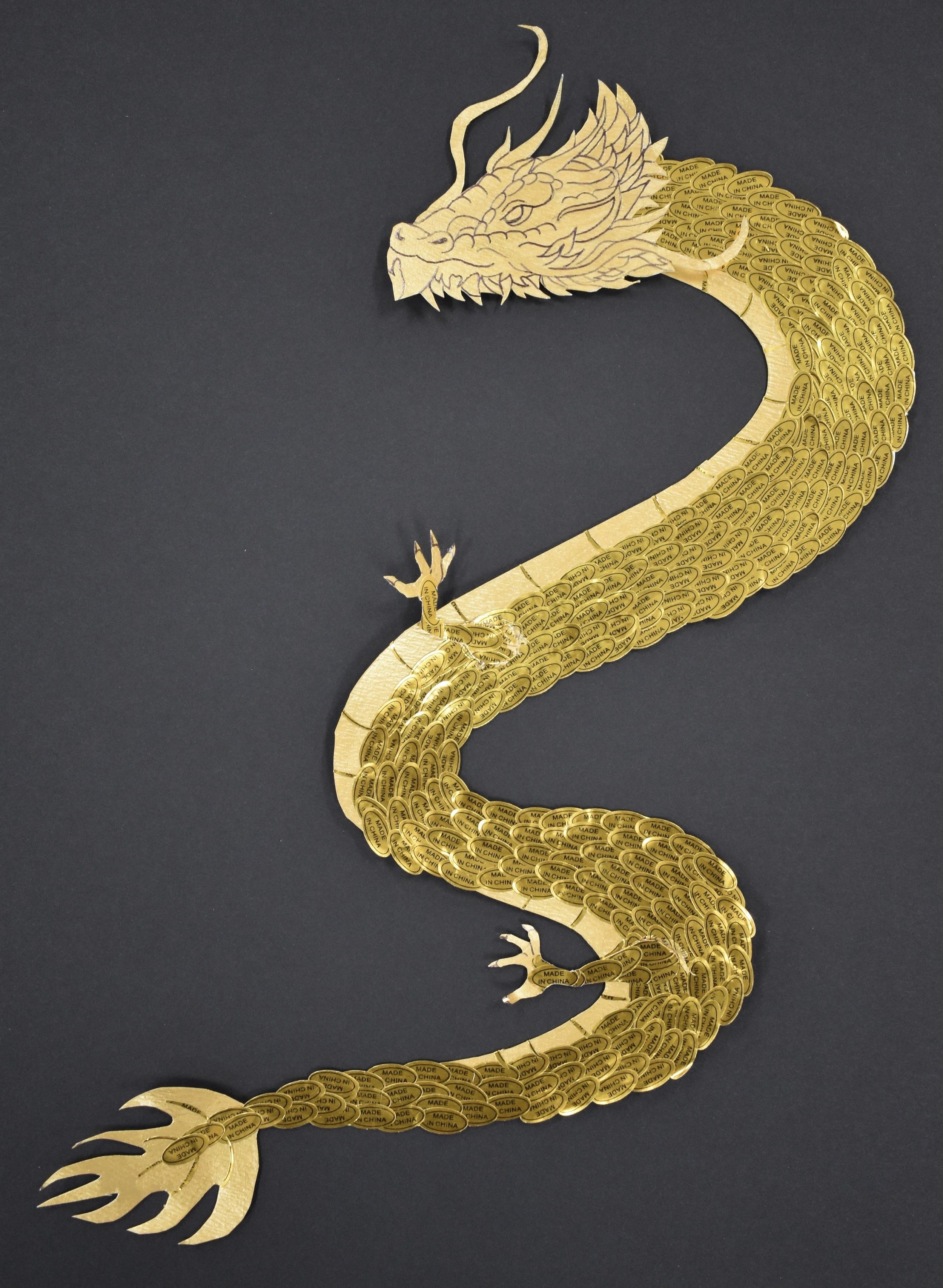
"Made in China" Dragon By Aubrey Meiling
As a transracial adoptee, being “from China” has been a common identifier that echoes
throughout my life. I’ve always known I was from China, but the truth never seems to feel real. I
cannot speak any form of Chinese nor do I remember anything about China, let alone being in it.
My Japanese boss, who’s taught me how to write my Chinese name, even discussed the
difference between me and “real” Chinese people. With this differentiation, I sometimes forget
the first part of my nationality, leaving off the Chinese in Chinese-American.
As often as many would describe me as a banana, “Made In China” stickers are also plastered
to my face. Both distort who I am as an individual and who I’m assumed to be.
Like the dragon, adoptees can be covered in labels, ones they accept and ones they don’t, but
all of the labels make up a part of who they are. Parts they were born into and parts they develop
and grow from over time.
My relationship with my adoption has evolved throughout the years, growing through guilt,
shame, and gratitude. All these aspects, of what is and what could have been, make up who I am.
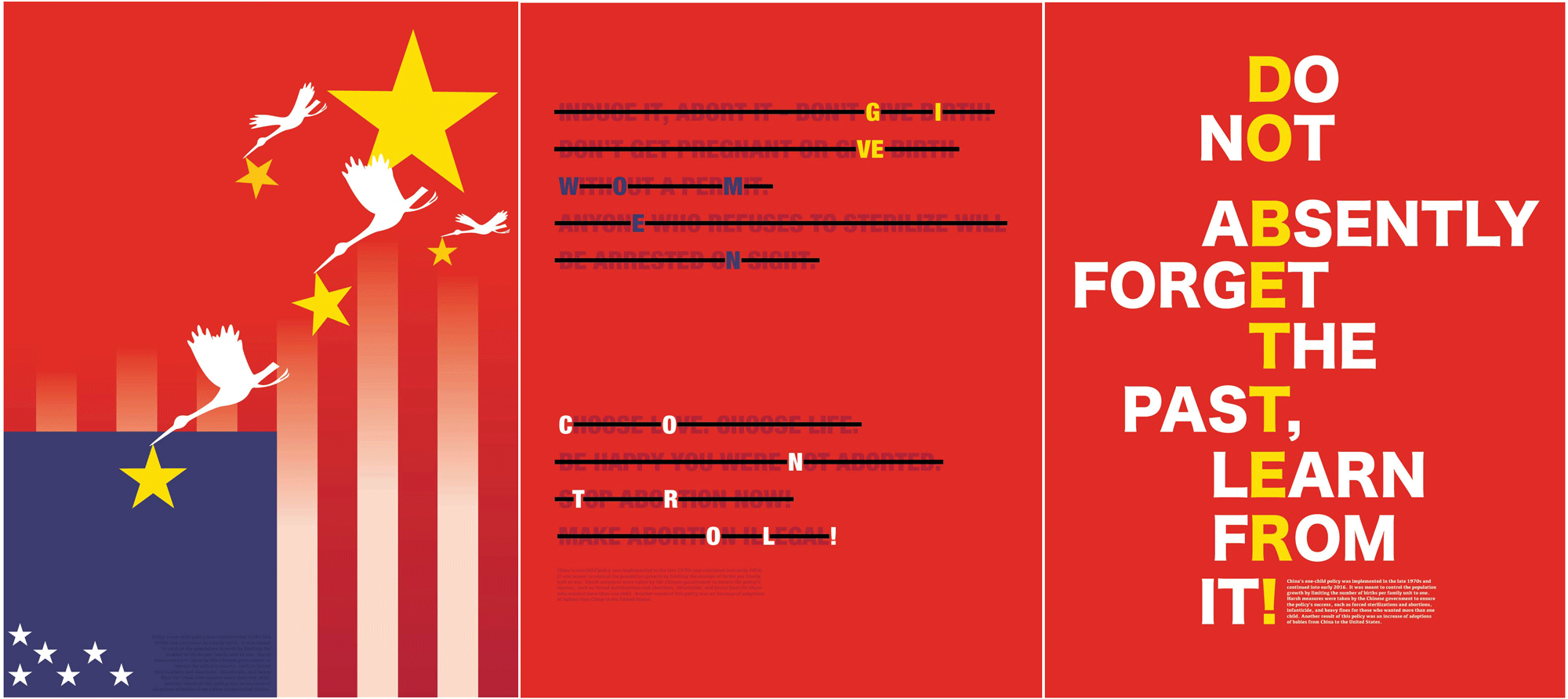
An Underlying Truth by Avery Rose-Craver
As an artist and adoptee from China, I interpreted China’s one-child policy and how it relates to the United States. I found this part of history to be insightful and wanted to bring awareness to the policy, specifically how it contributes to the issue of women’s rights.
The first poster shows storks carrying the stars from the Chinese flag to the US flag representing the babies that were adopted by American families as a result of the policy.
The second poster conveys the message that women should have control over their choice to reproduce by making the comparison between China and the United States’ extreme, but completely opposite, views of abortion.
The third poster reminds viewers to not forget or ignore their past but to learn from it to make a better future. It is also a critique on how neither China nor the United States is acknowledging and learning from China’s one-child policy. China has implemented more child policies that limit births, and the US is taking away women’s reproductive rights.

The Same Sky
I hope this piece can bring other adoptees comfort knowing that for now, the moon is a connection to our home. Each night I give the moon a message to deliver to my family in China, wherever they may be. And others can do the same until we are hopefully one day reunited.
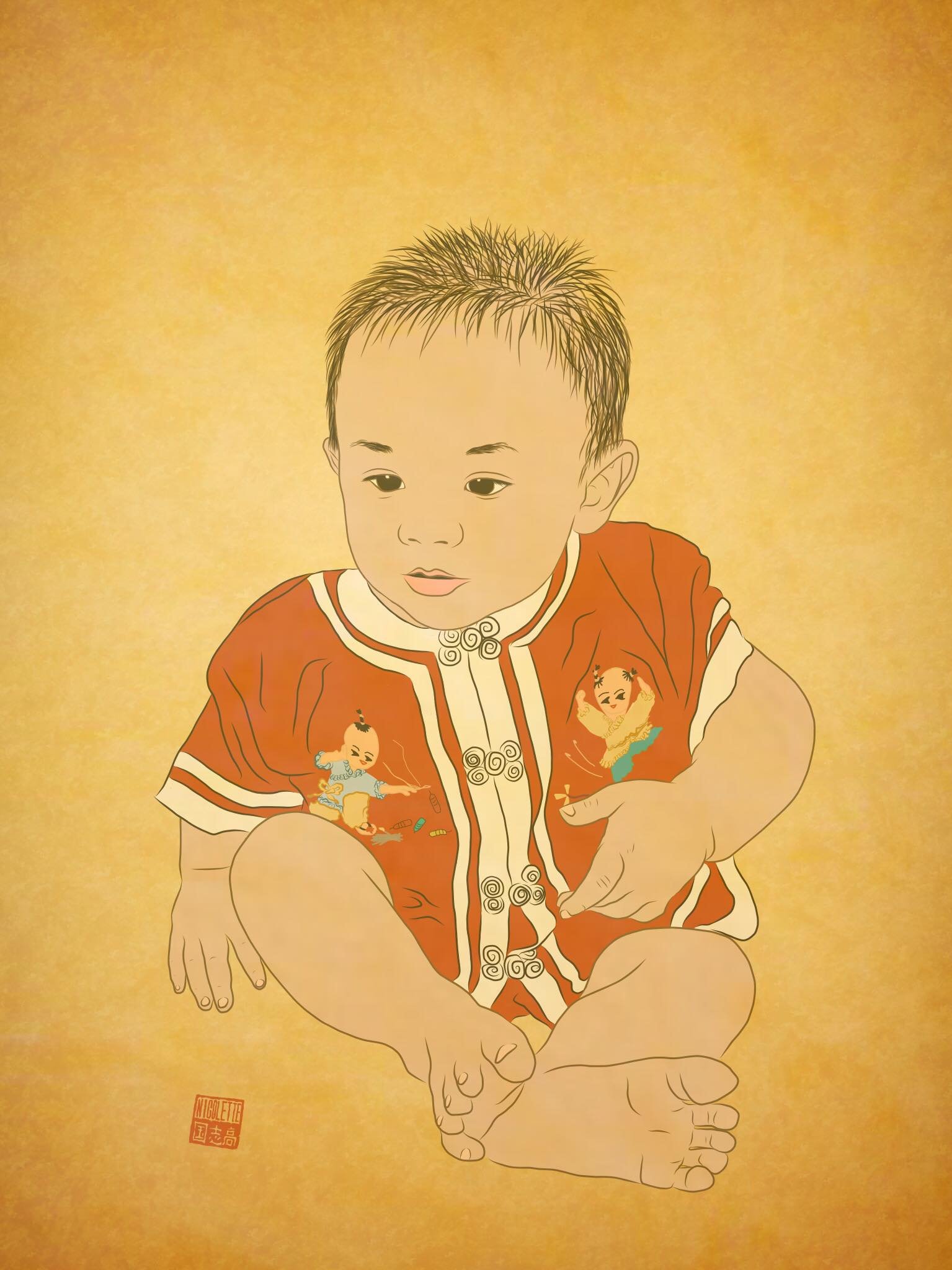
The Next Generation by Nicolette Lecy
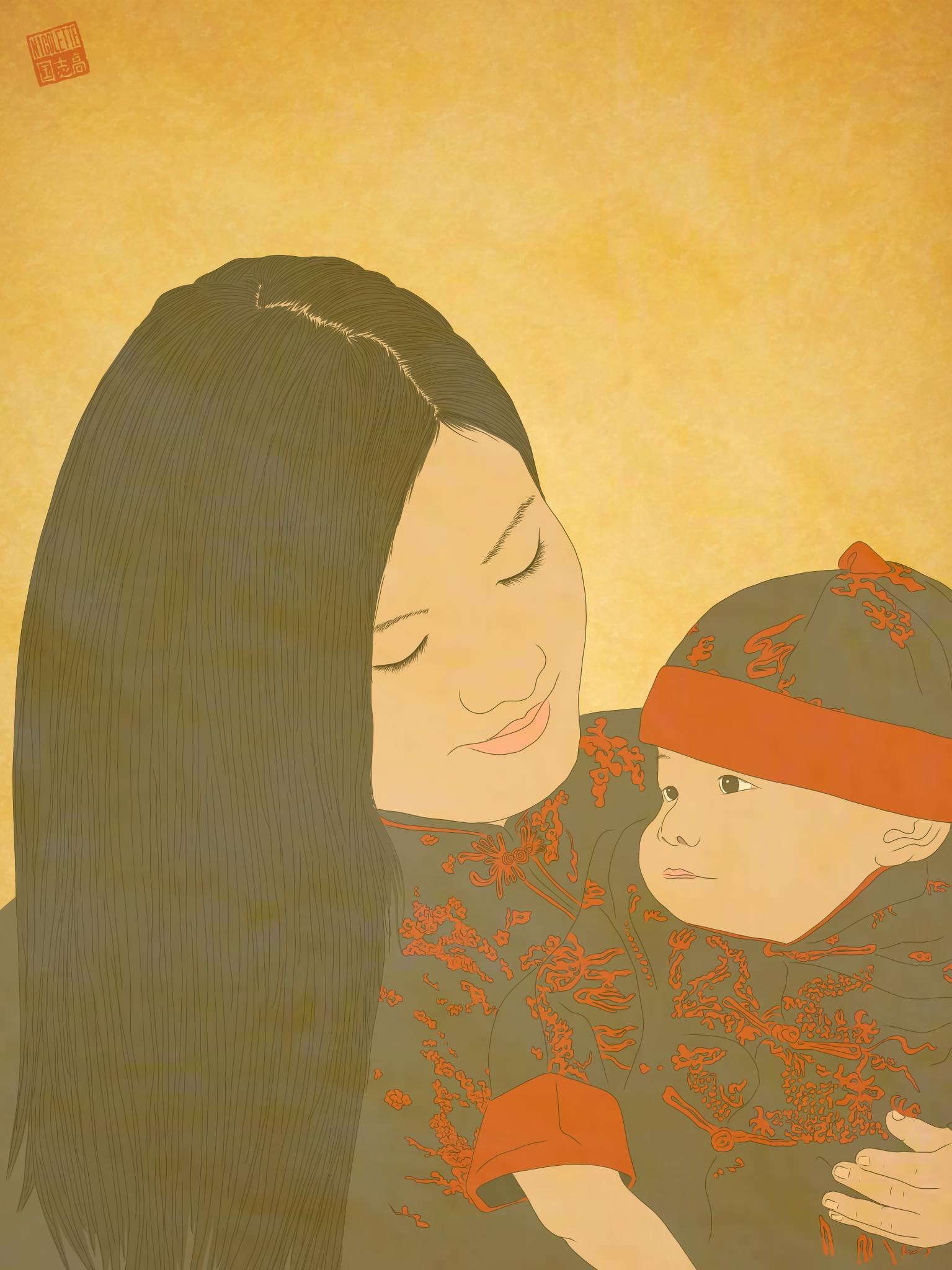
Expanding the Adoption Triad by Nicolette Lecy

Home by Nicolette Lecy















